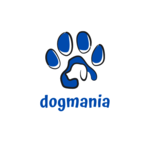Decoding the Ingredient List:
Uncovering the Truth About Fillers and
By-Products in Dog Food
Choosing the right dog food is crucial for your furry friend's health and well-being. With countless options lining the shelves, it can be overwhelming to decipher the ingredient list on each package. What exactly are fillers and by-products, and how do they affect the quality of your dog's food? Let's delve into the world of dog food ingredients to uncover the truth behind these often misunderstood components.
Understanding Fillers:
Fillers are ingredients added to dog food to bulk it up and provide a cheaper source of calories. While they may seem harmless, fillers offer little to no nutritional value for your dog. Common fillers include corn, wheat, soy, and rice. These ingredients are often used because they are inexpensive and readily available, but they lack essential nutrients that dogs need for optimal health.
The Problem with By-Products:
By-products are another controversial ingredient found in many dog foods. By-products are secondary products of the meat industry, such as organs, bones, and other parts not typically consumed by humans. While some argue that by-products can be nutritious for dogs, others are concerned about the quality and sourcing of these ingredients.
The Truth Behind the Label:
When examining the ingredient list on a bag of dog food, it's essential to look beyond the marketing claims and flashy packaging. Pay close attention to the first few ingredients listed, as these make up the bulk of the food. Ideally, the first ingredient should be a high-quality source of animal protein, such as chicken, beef, or fish. Avoid foods that list fillers like corn or wheat as the main ingredient, as these provide little nutritional benefit.
Quality Over Quantity:
When it comes to choosing the right dog food, quality should always take precedence over quantity. While budget-friendly options may be tempting, investing in a high-quality, nutrient-rich food will pay off in the long run with improved health and vitality for your dog. Look for foods that are made with whole, natural ingredients and are free from artificial preservatives, colors, and flavors.
Reading Between the Lines:
Understanding the language used on dog food labels can help you make informed decisions about what to feed your pet. Terms like "premium," "natural," and "grain-free" are often used to market dog food, but they can be misleading. Look for foods that are certified by reputable organizations like the Association of American Feed Control Officials (AAFCO) to ensure they meet nutritional standards.
The Importance of Balance:
In addition to quality ingredients, it's essential to consider the balance of nutrients in your dog's diet. A well-balanced diet should provide the right proportions of protein, carbohydrates, fats, vitamins, and minerals to support your dog's overall health and vitality. Consult with your veterinarian to determine the specific nutritional needs of your dog based on factors like age, breed, size, and activity level.
Making Informed Choices:
Ultimately, the decision about what to feed your dog is a
personal one that should be based on your pet's individual needs and
preferences. Take the time to research different brands and formulations, and
don't be afraid to ask questions about ingredient sourcing and manufacturing
processes. By prioritizing quality ingredients and balanced nutrition, you can
ensure that your dog enjoys a healthy and happy life by your side.
conclusion
Decoding the ingredient list on a bag of dog food can be
challenging, but it's essential for ensuring the health and well-being of your
furry friend. By understanding the role of fillers and by-products and
prioritizing quality ingredients and balanced nutrition, you can make informed
choices about what to feed your dog. Remember to consult with your veterinarian
for personalized recommendations, and always prioritize your dog's health and
happiness above all else.



leave me your thoughts here